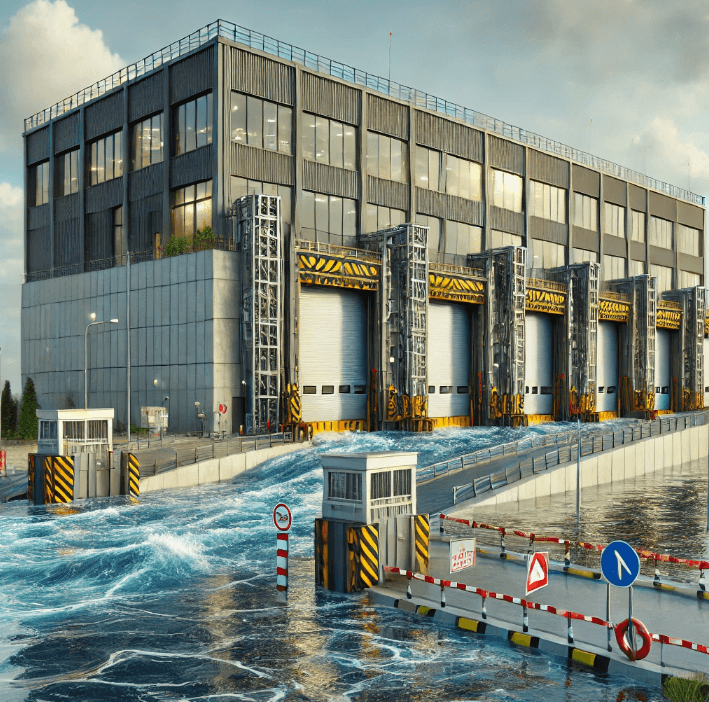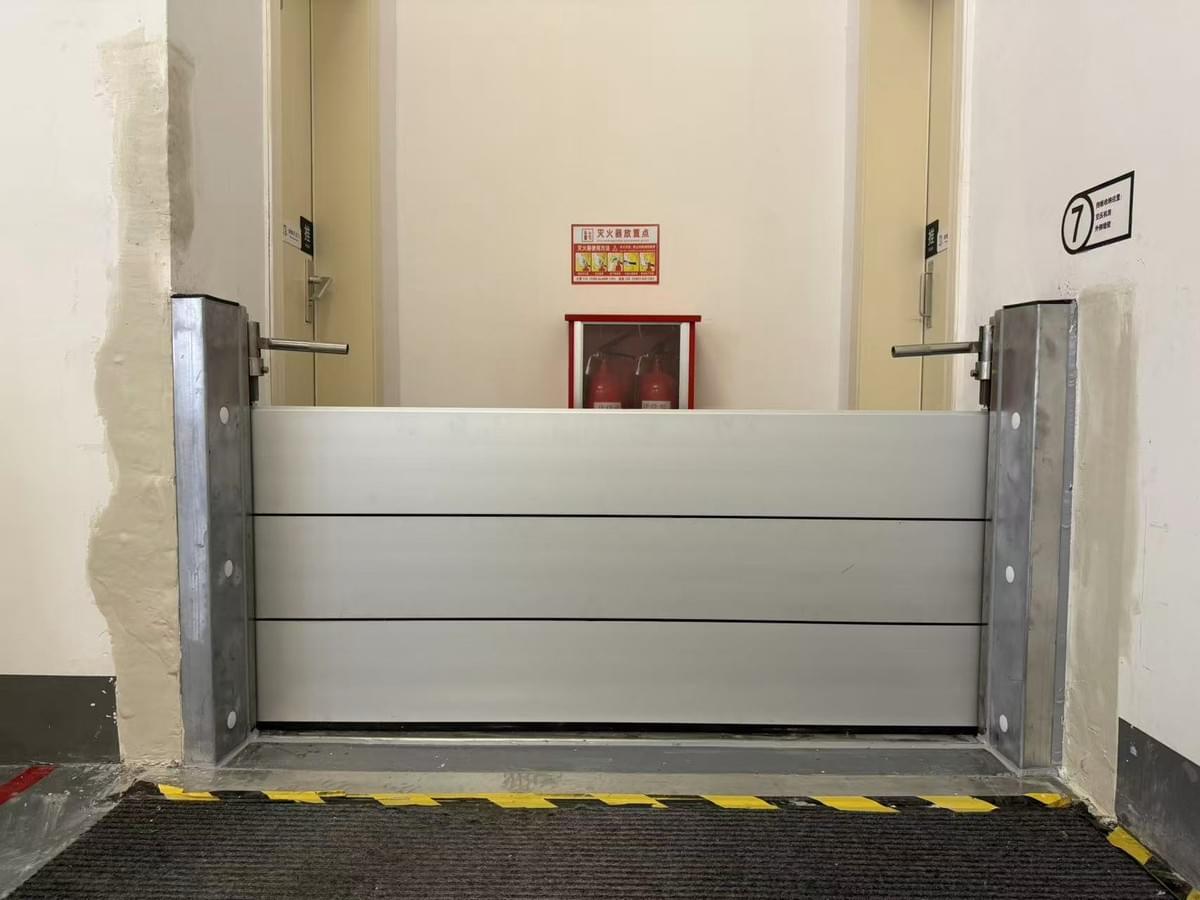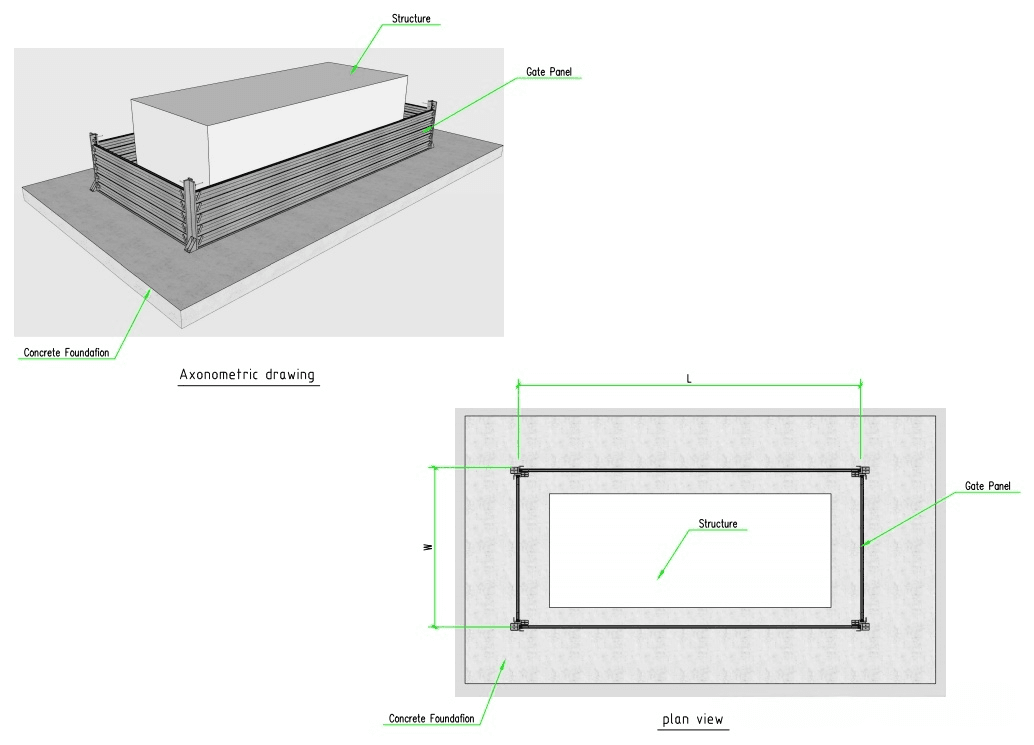In the context of global climate change and increasingly frequent extreme weather events, flooding has become the costliest natural disaster faced by industrial and commercial facilities. FM Data Sheet 1-40 (Flood) provides a scientific basis and engineering framework for flood loss prevention design, ensuring that facilities maintain resilience and continuous operation during flood events.
As a manufacturer and system solution provider of FM 2510-certified flood barriers, Shanghai Weiwang Technology Co., Ltd. always adheres to FM standards as the core foundation, integrating site-specific conditions to deliver a full life-cycle flood protection solution covering risk assessment, system design, installation, and maintenance.

Design Principles: From Risk Awareness to Engineering implementation
FM 1-40 emphasizes that the first step in flood protection design is to determine the Design Flood Elevation (DFE), which defines the protection boundary. This height should not only reference historical flood records but also be scientifically calculated using hydrological models, topographic elevation data, and tools such as the FM NatHaz Toolkit.
On this basis, a site-specific flood risk assessment should be conducted, including:

At the early stage of projects, Shanghai Weiwang combines FM 1-40’s assessment methodology with flood barrier selection to ensure that the protection height, door structure, and sealing performance match the actual site risks.
Engineering Strategies: Multi-Layer Defense System with Flood Barrier Applications
FM 1-40 divides flood protection strategies into site-level, building-level, and localized protection. Shanghai Weiwang integrates these into a practical layered defense system, leveraging the full performance advantages of FM-approved flood barriers.
- Site-Level Protection (Strategy A)
Where conditions allow, FM-approved flood barriers can be used as continuous and permanent flood walls or levees to form the first line of defense, complemented by a high-reliability pumping system to prevent the “bathtub effect.”
At critical access points and gates, FM-approved flood barriers can be installed for rapid closure during flood warnings, seamlessly integrating with the flood wall. For example, at the logistics entrances of chemical plants, flood barriers can serve as operable segments of the protection line—allowing daily passage under normal conditions and providing full sealing when flooding occurs.

- Building-Level Protection (Strategy B)
For production or storage buildings located in core floodplain areas, in addition to enhancing the watertightness of walls and floors, FM-approved flood barriers should be installed at all external doors, loading bays, and ventilation openings to ensure structural stability and zero leakage under water pressure.
To address backflow risks from municipal drainage systems, flood barriers can also be used internally to divide functional zones—such as installing small flood barriers at restrooms or low-level corridors, which are often vulnerable entry points for floodwater, to prevent inundation of core production areas.

- Localized & Equipment Protection (Strategies C~E)
When full-scale protection is not feasible, flood barriers can be installed at the entrances of critical rooms to create an “internal defense line” safeguarding electrical rooms, control centers, or server facilities.

Core Value of FM Approval
FM Approval (ANSI/FM 2510) is not only recognition of a flood barrier’s performance but also a guarantee of its reliability under extreme flood conditions. Certification testing covers hydrostatic pressure, hydrodynamic loads, debris impact, and flow velocity—all performed at full scale—ensuring that products maintain sealing integrity and structural strength under maximum design loads.
Conclusion
FM 1-40 is not only an engineering technical standard but also a management guide for resilient business operations.
Shanghai Weiwang Technology Co., Ltd. will continue to use FM standards as the foundation, applying FM-approved flood barriers to diverse scenarios and strategies. Through scientific assessment, precise design, and professional installation, we deliver multi-layered, sustainable, and verifiable flood protection systems—transforming flood risk from an uncontrollable threat into a manageable engineering challenge, safeguarding facility safety and business continuity.

